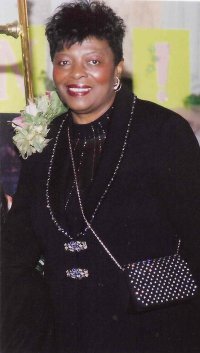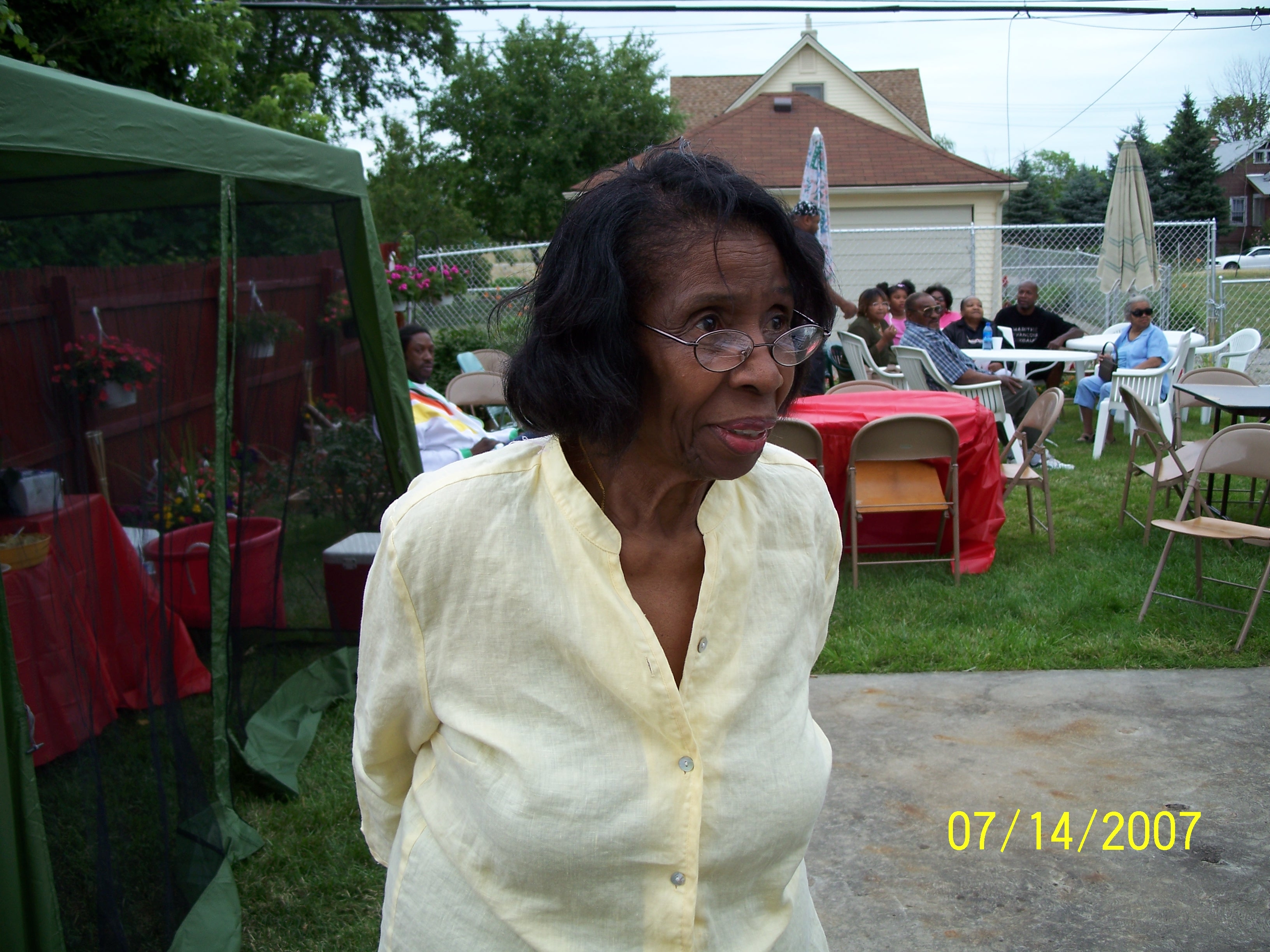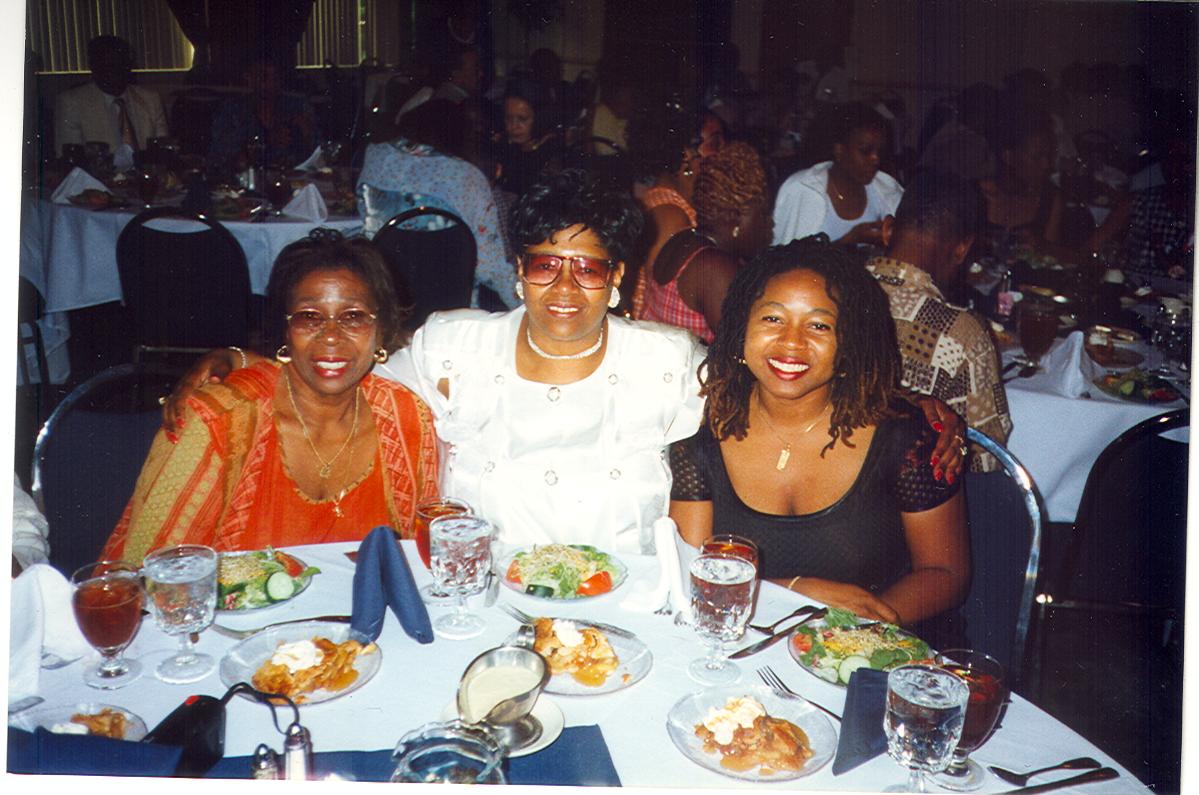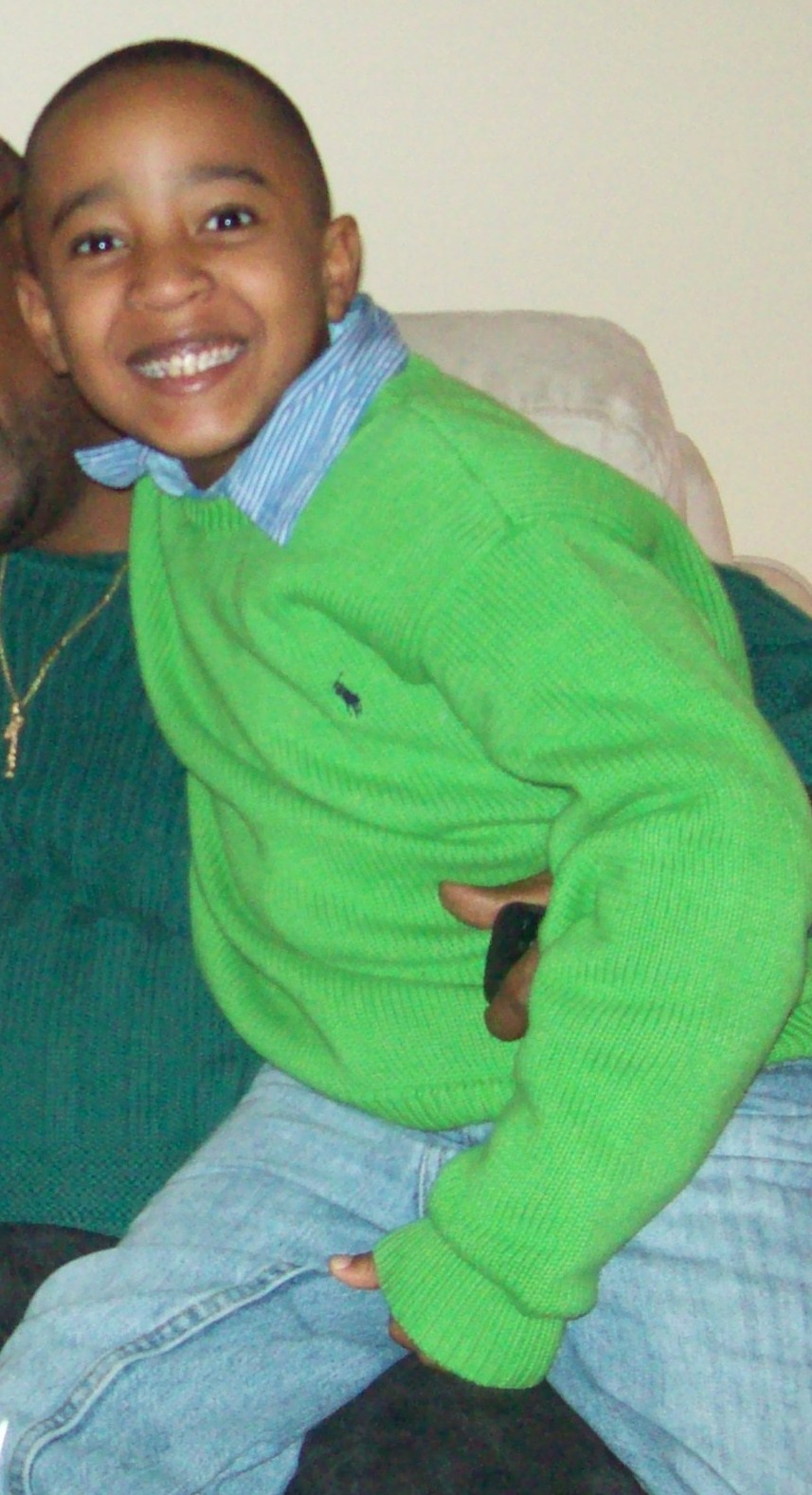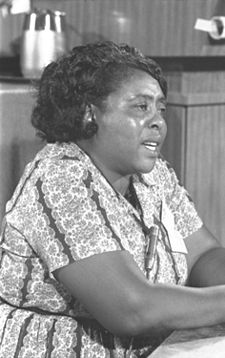Those who know Aunt Alfredine know that you truly believe you can fly when she talks to you. Always speaking in terms of “we,” you know she will have your back in whatever joint endeavor. But the event doesn’t have to be joint; if she knows she can help you and is available, she’s there, with a word, an action or a referral. In high school, she gave me my leadership start by allowing me to be an office aide and encouraging me to run for senior class secretary and president of AKA Teens (which I won), but she also encouraged me to try out for cheerleading and to run for Pep Club president (which I didn’t make). Whether good or bad she’s always made me feel I could achieve. As she moved her pointer finger slow like a gavel and her head shaking the same way with one eye closed and telling you her truth through pursed lips, she would always say something like, “You can’t win them all, but you know you’re good, Rhonda. You know you’re good.” And because she believed I was a good leader, as president of our sorority’s chapter she appointed me as co-chair and then chair of our founders’ day celebration, encouraged me twice to run for our chapter’s executive and foundation boards (which I won) and had me serve on a bunch of other committees. Often we were roommates (sometimes without my mother) at sorority conferences. We talked, shopped and dined together during these times and outside of them because our love for one another extended beyond leadership. She just knows how to make people feel special, and this she has done for me.
I thank her for teaching me how to mobilize and motivate people and love them unconditionally. And she taught her daughters to love that way, too. Never once did Lillian or Jennifer, my cousins and my sisterfriends, make me feel that I didn’t belong to their mother. They always called me the third daughter. I love Lillian and Jennifer because of our own bond but I appreciate them for sharing their mother with me and always knowing she had enough love for us all. Their capacity to love and share comes from a mother who has always wanted the best for all, even if that meant her going without. This educator, friend and leader is my Aunt Alfredine and I am proud to call her my shero.
Copyright by Rhonda J. Smith

